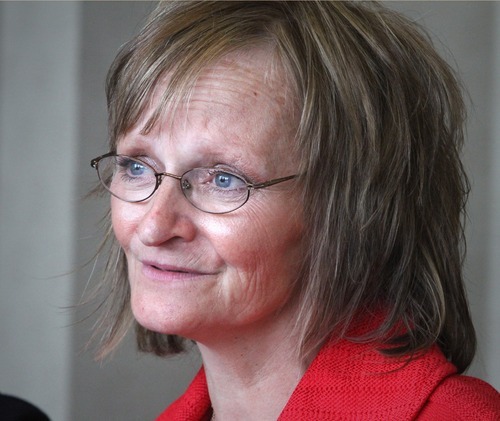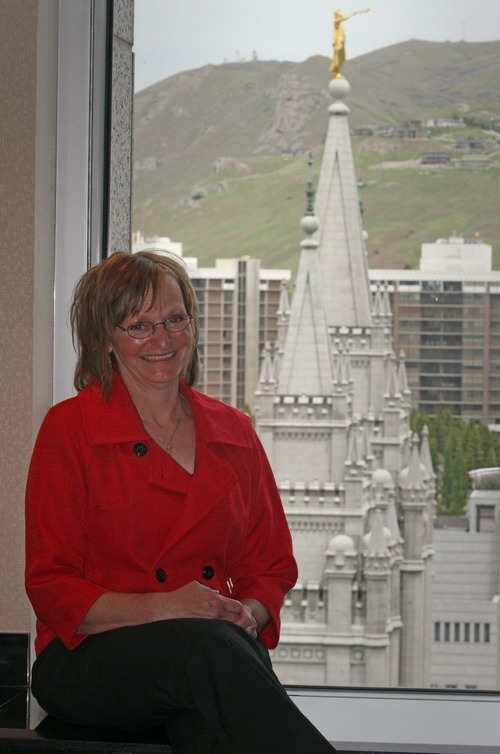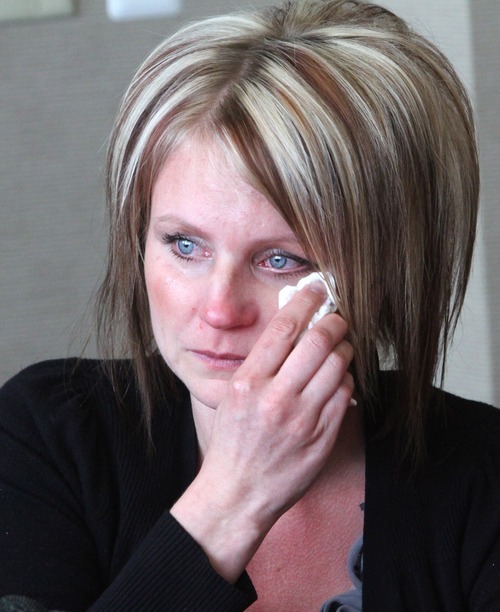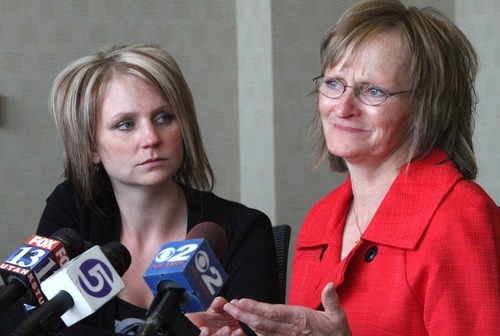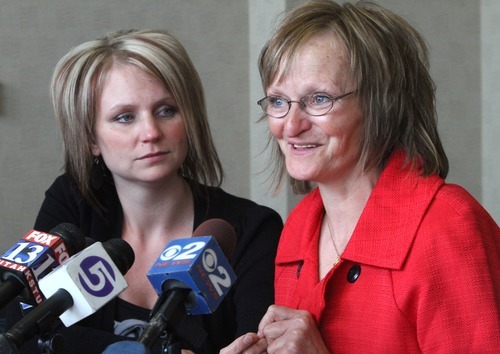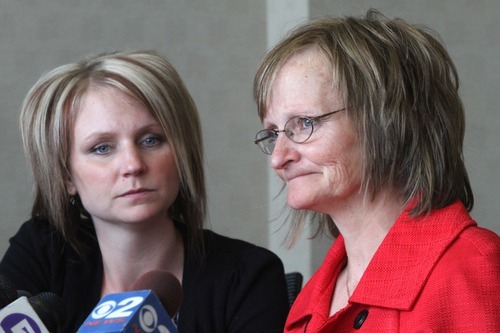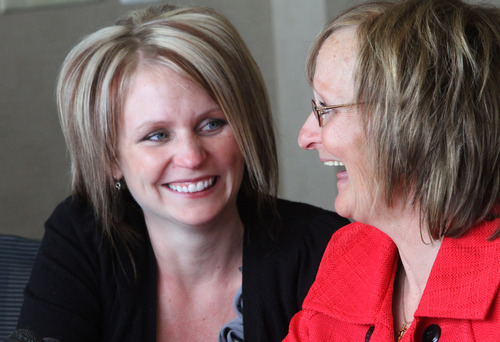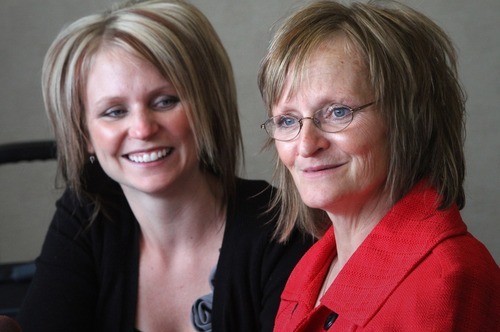This is an archived article that was published on sltrib.com in 2011, and information in the article may be outdated. It is provided only for personal research purposes and may not be reprinted.
In the three weeks she has been out of prison, Debra Brown says she has yet to have a typical day of freedom.
While "house hopping" from one family member to the next, she has been on a "million" bike rides, is sleeping well, loves the bathtub, eats when she is hungry and goes for walks.
She's even taken up multitasking. "I can do three things at once. I can watch TV, exercise [on a stationary bike] and be crocheting at the same time," Brown said Wednesday during an informal interview with local media at the law offices of Snell & Wilmer in downtown Salt Lake City.
After spending 17 years behind bars, Brown was released from prison May 9 by 2nd District Judge Michael DiReda, who found her factually innocent of the November 1993 shooting death of her friend and employer, Lael Brown, who is of no relation.
Sporting a new hairdo, the 53-year-old mother of three and grandmother of seven spoke about the "awesome" experience she has had so far integrating back into the world and her family's lives. "The world I left changed a lot," she said.
She described herself as an adult-infant learning all things new, from how to turn on a vacuum to how to use a cellphone."I'm muddling my way," Brown said. "There are some things that I don't get, but everyone has been very patient and they teach me."
She is appreciating carpet, pajamas, and not having a flashlight pointed at her face every hour when she goes to bed. Then there are the grandchildren, who are getting comfortable with her and calling her grandma.
Referring to previous interviews, Brown said she had told people she was going to leave the past behind and move on with her life. But as she grows accustomed to life outside of prison, she has discovered it is harder than she imagined.
The reality, she said, is that when she went to prison her children were babies. Now her babies have babies. "And I knew that, but to actually get out there and realize what you've lost, there is a kind of mourning that goes on," she said.
Sitting next to her, Alana Williams, Brown youngest child, became emotional when asked what it was like to have her mother back. "It's really hard because I know I can't explain to her in one week what has happened in 17 years," said Williams, who was 11 years old when her mom was imprisoned.
The latest news from Utah Attorney General Mark Shurtleff — that he will appeal the exoneration, after announcing he wouldn't — has put a "dark cloud" over Brown's present and future.
Shurtleff said he didn't want the case to set a "flawed legal precedent" that would open the floodgates to inmates challenging their convictions. On Tuesday, the A.G.'s Office filed its formal notice of appeal.
Brown said she was with her family shopping for groceries for a birthday meal when she received the call from her attorney with news of the appeal.
"I got hysterical," Brown said. "I'm not going to lie to you. I was like, 'What? How can this be?' We already had done the victory dance. We had already put this behind us, and all of a sudden it was right back in my face again."
Inside the car, the family bowed their heads, prayed and sobbed.
Brown said she is especially confused with the A.G.'s comment that the appeal is not about her, or sending her back to prison.
"So what exactly is it about, because it's really affecting me and my family," she said.
Williams said the family is disappointed with the A.G.'s Office, but has faith in Brown's legal team. "We believe and are 100 percent confident in her team," Williams said. "I have no doubt in my mind that we are going to win this."
Brown will not return to prison during the appeal process, according to staff from the Rocky Mountain Innocence Center, but may be incarcerated again if the A.G. prevails.
"What do you do? I think we are going to do the only thing we can," Brown said. "We are going to continue to push forward and be the family that we ain't been able to be. I'm stubborn and I am not willing to give anybody one more minute of time that has been robbed."
The Debra Brown case
At Debra Brown's 1995 trial, prosecutors claimed she shot and killed her friend and employer, 75-year-old Lael Brown, at his Logan home at 7 a.m. on Nov. 7, 1993 — the only time when Debra Brown had no corroborated alibi. She was sentenced to prison for up to life.
Earlier this year, Rocky Mountain Innocence Center attorneys presented witnesses who said they saw Lael Brown alive after he had supposedly been killed.
Second District Judge Michael DiReda found Debra Brown "factually innocent" of the homicide and ordered her released from prison on May 9.
The Utah Attorney General's Office initially said they would appeal DiReda's decision, but A.G. Mark Shurtleff quickly countered that there would be no appeal. Then, last week, Shurtleff reversed himself, saying an appeal is needed to prevent establishment of a "fatally flawed" legal precedent.
Debra Brown had challenged her conviction by relying on a 2008 statute that allows an inmate who finds new non-DNA evidence to seek an exoneration hearing.


